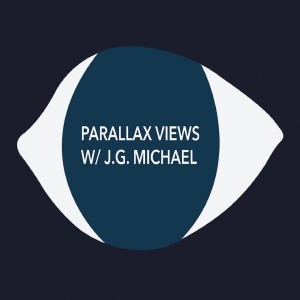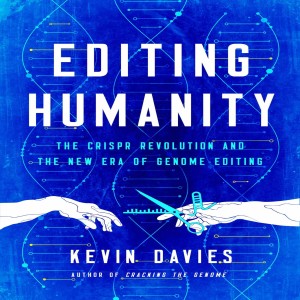
Parallax Views w/ J.G. Michael
Society & Culture

Editing Humanity: The CRISPR Revolution and the New Era of Genome Editing w/ Kevin Davies
 2020-11-11
2020-11-11
On this edition of Parallax Views, last month two female scientists, Jennifer Doudna and Emmanuele Charpentier, won the 2020 Nobel Prize in Chemistry for their revolutionary work on CRISPR-Cas9, a technology that opens the door gene editing in ways previously unimagined. The win has been, rightfully, seen as a pivotal moment for women in science, but what, beyond that, what is the broader story of CRISPR and gene editing? What are the broader implications of gene editing and what does it entail for bioethics (ie: could CRISPR be used for darker purposes such as eugenics or bioterrorism)? What are the potential uses of this incredible technology? And what are the stories of the people involved in this game-changing scientific discovery? Kevin Davis, Founding Editor of Nature Genetics, Executive Editor of The CRISPR Journal, and author of Editing Humanity: The CRISPR Revolution and the New Era of Genome Editing, joins us to answer those questions and much more.
Among the topics we cover:
- What is CRISPR-Cas9?
- The troublesome story of Chinese scientist He Jiankui, who used CRISPR-Cas9 on two babies and caused a massive backlash in the scientific community as a result.
- Where does the idea of gene editing arise?; The history of gene therapy; James Watson and the Double Helix
- The potential agricultural uses of CRISPR
- Harvard University geneticist George M. Church, who played a pivotal role in the story of CRISPR, and his notion that, theoretically, CRISPR could be used to resurrect the wholly mammoth and address the climate change crisis
- Concerns about CRISPR technology related to misuses for eugenics and bioterrorism; CRISPR, bioterrorism, and COVID
- "Biohacking" and the ready availability of CRISPR kits
- And much, much more!
More Episodes
Create your
podcast in
minutes
- Full-featured podcast site
- Unlimited storage and bandwidth
- Comprehensive podcast stats
- Distribute to Apple Podcasts, Spotify, and more
- Make money with your podcast
It is Free
- Privacy Policy
- Cookie Policy
- Terms of Use
- Consent Preferences
- Copyright © 2015-2024 Podbean.com





